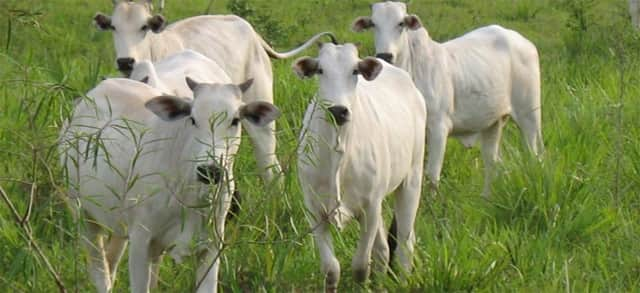USDA decision a blow to Brazil


This is no surprise, given its economic strength. The UK wants to sell it high tech products and services, but part of the price will be enhanced access to the UK for Brazilian beef and poultry. There is no question that Brazil can produce meat at a cost per kilo that is highly competitive, and both it and Argentina have their sights set on growing export markets.
When it comes to beef, Brazil and Argentina are on very different tracks. With the Argentinian steak houses in Europe Argentina has targeted its reduced tariff access at the top of the market. It has been successful, and its approach does not damage European interests. However Brazil has long been a source of frustration for European farmers, and with the scandal that emerged recently things are getting worse. Now the limited response of the European Commission has been highlighted by the US Department of Agriculture taking the bold step of banning imports of fresh beef from Brazil. It has made clear that this will stand until Brazil can prove it has finally got standards in its beef industry up to levels that are internationally acceptable.
Advertisement
Advertisement
This USDA decision is a blow to Brazil. It recently regained access to the United States, and many other countries still view the USDA as a setter of standards. It has taken this action despite the fact that some of the key players in the Brazilian meat industry, including JBS that has put Moy Park up for sale, are also big players in the United States. Despite its big sale of assets, partly to meet huge fines imposed by the Brazilian authorities, JBS remains the biggest beef processor in the world. That shows the willingness of the USDA to do what it believes right, even if it has implications at home.
Farm lobby organisation here and elsewhere in Europe have been pressing the Commission for a similar ban. At the very least they want the Mercosur trade talks, which include Brazil, put on hold until its beef industry can be fully investigated. That could see beef removed from that negotiation, but this has been rejected by the Commission. It is determined to secure a new free trade deal with the Mercosur bloc, and wants to do this before Brexit. This seems to be part of a ploy to lock up trade deals before the UK can begin its separate negotiations. That makes sense for the EU, and its offer is always 500 million people in a single market, against 60 million in the UK. That, as well as a lack of negotiating skill at official level, is making life difficult for the UK, which cannot formally conclude any trade deal until it leaves the EU.
The European Commission insists its response is proportionate to the concerns raised by its veterinary inspectors that have visited Brazil since the scandal broke. Its approach is however in stark contrast to what happens within the EU. There the Commission favours the ‘precautionary principle’, banning techniques and chemicals without robust scientific evidence. By contrast it is bending over backwards to accommodate Brazil, checking individual consignments of beef and apparently accepting assurances that standards are being improved. If that is the case the question the Commission needs to answer, is why the US was given the same reassurance but chose to ban fresh beef imports. If its inspectors have been reassured about what is happening in Brazil it should make their full report public.
Inevitably the suspicion is that wider interests are in play. When Brazilian beef was first banned some years ago by the EU it was a decision it had to be forced to make. Now it is reluctant to go back down that road, despite events in Brazil being unacceptable. While beef from the plants involved may have been banned, there is clearly a culture in the industry that would be unacceptable here.
Advertisement
Advertisement
That Brussels wants a trade deal to secure non-agricultural exports should not feature in the decision making process, but it is difficult to believe that is not happening. It is equally difficult to believe it will be any better when the UK seeks its own trade deals, since it will be under even more pressure to secure these and prove that Brexit can work.